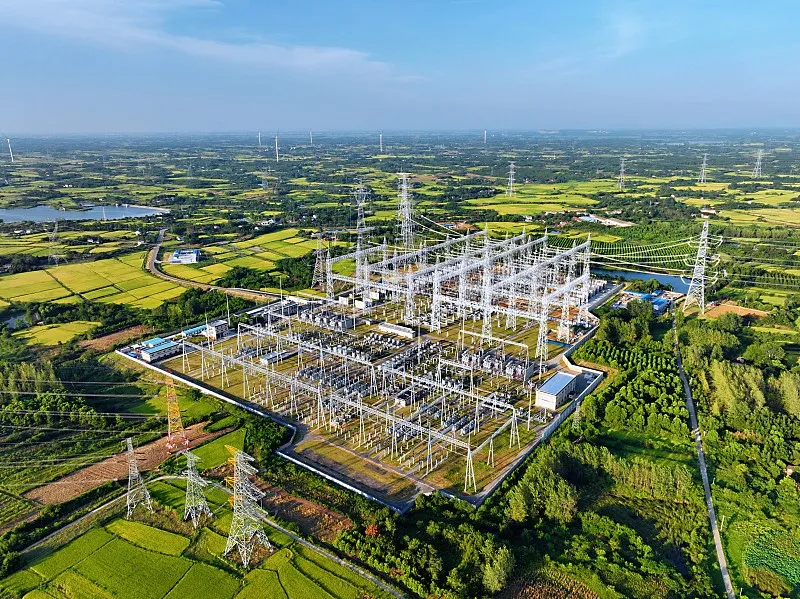אילו הם היתרונות המרכזיים בשימוש במדחסח גז לדירת מגורים?
חימום יעיל עבור מרחבים פנימיים מגוונים
פיזור חום מהיר לנוחות מיידית
אחד היתרונות המושכים ביותר בשימוש ב חמם חדר גז הוא היכולת לייצר חום במהירות ולהפיץ אותו באופן שווה בכל החדר. להבדיל ממחוממים חשמליים שלעיתים לוקח להם זמן להתחמם, ה חמם חדר גז מתחיל לייצר חום כמעט מיד לאחר הדלקה. מיקד החום המהיר הזה מבטיח שהמשתמשים ירגישו בנוחות תוך דקות מהפעלת המכשיר. החום הרדיואקטיבי והקונבקטיבי שמייצרים יחידות אלו חודר לקירות, רהיטים ואובייקטים, ועוזר לשמור על טמפרטורה קבועה גם לאחר כיבוי החימום. עבור בתים באזורי אקלים קרים, החום המיידי הזה הוא בעל ערך רב הן לחיים היומיומיים והן למצבים חירומיים במהלך קורות קפיאה. חיממים חדריים של גז הם אידיאליים לשימוש בסביבות פנימיות מגוונות, בין אם מדובר בסלון, חדר שינה או מרתף. זמני ההתחממות המהירים שלהם הופכים אותם למועילים במיוחד במרחבים גדולים שבהם אחזקת חום יכולה להיות מאתגרת יותר במערכות חשמל מסורתיות.
חימום לפי אזורי שימוש כדי למזער בזבוז אנרגיה
חיממים חדרים המופעלים בغاز מציעים פתרון יעיל לחימום אזורי, ומאפשרים לבעלי בתים לחמם אזורים ספציפיים בבית מבלי להסתמך על מערכת חימום מרכזית. גישה זו לא רק שמשפרת את הנוחות, אלא גם מפחיתה את צריכת האנרגיה הכוללת. במקום לחמם את כל הבית, ניתן למקד את החום באותם חדרים שבהם הוא נחוץ במיוחד, למשל חדרים מאוישים בערב או מרחב עבודה ביום. חימום אזורי באמצעות חימם חדרי גז יכול להוריד משמעותית את חשבונות המנויים, במיוחד בעונות הרך שבהן חימום של כל הבית הוא מיותר. הגישה הממוקדת הזו גם מפחיתה את הנזק למתקנים מרכזיים של מיזוג אוורור, וכך מאריכה את חיי השירות שלהם. יתר על כן, לחיממים המופעלים בغاز יש לרוב תרמוסטטים ופקדי להט ניתנים להתאמה, מה שנותן למשתמשים שליטה רבה יותר על טמפרטורת החדר וצריכת האנרגיה. כאשר מטפלים בהם כראוי ומפעילים אותם בצורה אסטרטגית, חיממים חדרים המופעלים בغاز מספקים אפשרות חימום עמידה ויעילה מבחינת עלויות לכל סוגי המשפחות.
נאמנות במהלך כיבוי חשמל
פעולה ללא הפסקה ללא חשמל
מאפיין בולט של מתחם חדר גז הוא היכולת לפעול באופן עצמאי מהרשת החשמלית. באזורים הנוטים לחוסר זרם חשמלי, במיוחד במהלך סופות חורף, יש חשיבות רבה למערכת חימום שאינה תלויה בחשמל לצורך ביטחון ו편 комфорт. רוב מתחמי חדרי גז, במיוחד אלו עם מנורת דלק או הצתה באמצעות סוללות, ממשיכות לפעול במהלך הפסקות זרם, ומבטיחים שהטמפרטורות בפנים תישארנה נוחות לחיים. מכאן נובעת חשיבותם כפתרון חימום חלופי לבתי משפחות באזורים הכפריים או מחוץ לרשת החשמל. הביטחון שנותן חימום ללא הפסקה מאפשר למשפחות להישאר בטוחות, מונע מהקפאת צינורות מים ותומך בהמשך בפעילויות היומיומיות גם בתנאי חירום. בעלי בתים יכולים לסמוך על מתחם חדר הגז לא רק לצורך החימום היומיומי אלא גם כפתרון מהימן במצבי חירום כאשר חשמל אינו זמין לתקופות ארוכות.
אידיאלי לחיים בסביבות נידחות או מחוץ לרשת החשמל
חיממים חדרים המופעלים בغاز הם פתרון אידיאלי במיוחד עבור סופות, בתים לנופש ומבנים מרוחקים שבהם חשמל עשוי להיות מוגבל או יקר להתקנה. עבור אנשים החיים ללא חשמל, חימם חדרים המופעל בغاز מספק חום עקבי ללא עלויות תשתית הכרוכות בחימום חשמלי. גלונים של גז פרופאן או מתאן יכולים להישאב בקלות ולאוחסן, מה שמבטיח מקור דלק מהימן לאורך חודשי החורף. בסביבות כאלו, האופי העצמאי של חיממים אלו הופך לערך מוסף, שכן הם אינם דורשים חיווט מורכב או תחזוקה מתמשכת הקשורה לרשת החשמל. בנוסף, רבים מהחיממים המודרניים המופעלים בغاز נועדו עם תכונות ביטחון מובנות ושרפות יעילות שממירות את צריכת הדלק תוך שמירה על טמפרטורת חדר נעימה. כל זה הופך אותם לפתרון מעשי וקל לתפעול עבור אנשים המעדיפים עצמאות אנרגטית וחיים מפושטים.

יתרונות סביבתיים וכלכליים
הפחתת עלויות האנרגיה לאורך זמן
מדחמי חדרים בעיון ידועים בפעולתם שפוּתת עלות בהשוואה לרבות מהחלופות החשמליות, במיוחד באזורי מיקום בהם מחירים של גז טבעי או פרופאן נמוכים ממחירים של חשמל. לאורך עונת החימום, שימוש במדחס חדר בעיון עשוי להוביל לחסכון ניכר בדמי האנרגיה, במיוחד אם משתמשים בו בצורה אסטרטגית באזורים עם תנועה רבה. החיסכונות האלה הופכים להיות ניכרים אף יותר כאשר בעלי בתים משלבים בתביעות חימום חכמות, כגון הורדת הטמפרטורה המרכזית תוך הסתמכות על מדחס חדר בעיון בחדרים הנעשים בהם שימוש באופן קבוע. ההשקעה המקורית במדחס בעיון נפרעת לרוב תוך מספר עונות עקב הוצאות מופחתות על שירות. בנוסף, למדחמי גז יש בדרך כלל אורך חיים תפעולי ארוך וتكפיפית תחזוקה נמוכה, מה שמעודד את נוחות השימוש בטווח הארוך. עבור משפחות המשגיחות על הוצאות האנרגיה שלהן, מדחמי חדר בעיון מספקים שילוב מאוזן של עלויות תפעול נמוכות ותפקוד עקבי לאורך חודשי החורף.
הפחתת עקבת הפחמן עם בעירה נקייה
מחוממים חללי גז מודרניים נועדו לשרוף דלק ביעילות, ומייצרים פלט מזערי ומקסום את תפוקת החום. בעת שימוש בגז טבעי, דלק מאובך שבעירתו נחשב ליחסית נקי, מחוממים אלו פולטים מזהמים פחותים בהשוואה למערכות חימום המבוססות על נפט או פחם. דגמים רבים מצוידים כיום בחיישני ירידה באוקסיגן (ODS) ומגבירי קטליזה שמשפרים את יעילות השריפה ופוחתים עוד יותר את הפליטות המזיקות. התקדמות סביבתית זו עוזרת למשפחות להפחית את עקבת הפחמן שלהן מבלי להתפשר על הנוחות. יתרה מכך, מחוממים חללי גז תורמים לפסולת אנרגיה כוללת פחותה הודות لقدرتם על חימום מקומי. על ידי הפחתת הביקוש ממערכות החימום המרכזיות, בעלי בתים מקטינים באופן עקיף את צריכת האנרגיה של תשתיות פחות יעילות. עם הדגש העולמי ההולך וגובר על קיימות, בחירת מחמם חללי גז שתומך בעקרונות אקולוגיים היא צעד פרקטי לעבר אורח חיים ירוק יותר.
עיצובים גמישים ובטיחות מוגזמת
צורות קומפקטיות לכל סוגי החדרים
מחממי חדרים גזיים מודרניים מגיעים במבחר רחב של עיצובים, מה שמאפשר לבעלי בתים לבחור יחידות המתאימות לשטח הפנים aesthetic ופונקציונליות. ממודלים המותקנים על הקיר ועד יחידות רצfloorיות ניידות, מחממי גז ניתנים להטמעה ביתית קלה במבנים שונים. מודלים קומפקטיים הם שימושיים במיוחד בדירות, אולפננים או בתים זעירים בהם שטח הרצפה מוגבל, בעוד יחידות נפרדות גדולות משרתות היטב אזורי מגורים נרחבים. שיקולי עיצוב כוללים לרוב משטחים קרים למגע, תכונות למניעת חדירה של ילדים ופקדים מוסתרים שתרמו לסביבה בטוחה וידידותית למשפחה. עם סגנונות המגוונים ממנחיזם מודרני ועד מראה קלאסי מע cast ברזל, מחממי חדרים גזיים יכולים לשמש גם ככלי פונקציונליים וגם כאלמנטים דקורטיביים. אופיים הבלתי מפרים מבטיחים שהם יספקו חום מבלי לפגוע בהרמוניה הוויזואלית של החדר או גמישות במבנה.
תכונות בטיחות מובנות לבטחון מוחלט
בטיחות היא עדיפות עליונה בעיצוב מחממי חדר גז, וחיבורים מודרניים מצוידים בשכבות רבות של הגנה כדי למנוע תאונות. תכונות כמו מערכות כיבוי אוטומטיות מופעלות אם היחידה מתחממת יתר על המידה או מתהפכת, מה שהופך אותם לבטוחים יותר עבור משקי בית עם ילדים או חיות מחמד. חיישני ניתוק חמצן מזהים כאשר רמות החמצן בפנים יורדות נמוכות מדי, ומפעילים כיבוי אוטומטי כדי למנוע צבירת פחמן אחד חמצני מסוכן. מכשירים לכישלון להבה חוסכים את אספקת הגז אם האור או להבה של הטייס כבויים באופן בלתי צפוי. אמצעי הגנה מובנים אלה מספקים לבעלים של בתים את הביטחון להשתמש במגני הגז מדי יום ללא פיקוח מתמיד. בנוסף לביטחון טכנולוגי, הוראות משתמש ברורות והנחיות תחזוקה עוזרות למשתמשים להשתמש בחממים שלהם בצורה נכונה ויעילה. כאשר מותקנים כראוי ומשמשים בהתאם להמלצות היצרן, מחממים חדר גז הם בין מכשירי החימום הבטוחים ביותר הזמינים בשוק.
שימושיות ונמוך תחזוקה
שלטים פשוטים והגדרה מהירה
חיממים חללי גז מותקנים עם נוחות המשתמש בדעת, מה שהופך אותם לנגישים לאנשים מכל הרמות הטכניות. רוב היחידות מצוידות בمقבים אינטואיטיביים או מסכים דיגיטליים להגדרת טמפרטורה ועוצמה של הלהט. חלק מהדגמים כוללים שלט רחוק או שעון מתוכנת שמאפשרים למשתמשים להתאים את תכניות החימום לפי הרגלי היום-יום שלהם. ההתקנה בדרך כלל פשוטה, במיוחד לדגמים ניידים שדורשים רק חיבור למקור גז ותרבויות מתאימות. דגמי הקיר עשויים להזמין התקנה מקצועית אך לרוב מצורף אליהם הוראות ברורות ותמיכה. פשטות זו פירושה que דיירים יכולים לשלב במהרה חימם חללי גז בבית שלהם מבלי להתמודד עם התאמות מורכבות. הירידה בדרישה לידע מקצועי הופכת את חיממי החדרים בغاز לבחירה פופולרית בקרב שוכרים, קשישים, וכל אחד המחפש פתרון חימום טריוויאלי עם מינימום מאמץ.
שגרות תחזוקה שמגינות על ביצועים עקביים
תפעול שגרתי של מותחי חדר גז הוא יחסית פשוט ועוזר להבטיח תפקוד מיטבי עונה אחרי עונה. בדיקה תדירה של האור pilots ושל היציאות לאש על מנת לוודא שאין חסימות, ניקוי משטחים חיצוניים, ודאגה לכך שהיחידה חופשית מאבק ופסולת יכולה למנוע אובדן יעילות ולהאריך את חיי המותח. בדיקות שנתיות על ידי טכנאי מוסמך מומלצות כדי לבדוק דליפות גז, להעריך את צבע הלהט, ולאמת את שלמות תכונות הבטחה. החלפה או ניקוי של מסננים, אם רלוונטי, עוזרים לשמור על זרימת אוויר ושרפה נקיים. מאחר שמוחתי חדר גז יש פחות חלקים נעים בהשוואה למערכות חשמל או סוללות, דרישות התפעול שלהם נמוכות יותר, מה שעושה אותם יותר אמינים לאורך זמן. טיפול תקין גם עוזר להימנע מקנסות בטחוניות ומפחית את הסיכון לפולטים לא צפויים בתקופות שיא הצריכה. עם תחזוקה עקבית, מותח חדר גז יכול לשמש כפתרון חימום ביתי מהימן וארוך טווח.
שאלות נפוצות
האם מותר להשתמש במוחתי חדר גז בפנים?
כן, מודרניים חיממי חדרים אופייניים לתכנון בטוח לשימוש בפנים ומכילים תכונות כמו חיישני ירידה באוקסיגן, התקני כיבוי אש ואיתות עצירה אוטומטיות כדי להגביר את הבטחה של המשתמש בעת שימוש לפי ההוראות של היצרן.
האם חיממים חדר בغاز צורכים הרבה דלק?
חיממי חדרים גז יחסית חסכוניים בדליק ומעוצבים כדי למקסם את תפוקת החום עם דלק מזערי. שימוש בהם לחימום אזורי עוזר להפחית את צריכת האנרגיה הכוללת של הבית ומצמצם את חשבונות השירותים.
האם אפשר להשתמש בחימם חדרים גז בדירת מגורים?
רבים מחיממי חדרים גז קומפקטיים ומעוצבים למקומות קטנים, מה שהופך אותם למתאימים לדירות. עם זאת, תמיד יש לבדוק את תקני הבנייה ודאגה לוורידציה מתאימה לפני ההתקנה.
באיזו תדירות יש לבצע תחזוקה לחימם חדרים גז?
תחזוקה בסיסית כמו ניקוי צריכה להתבצע כל מספר שבועות בשימוש. בדיקה מקצועית מומלצת אחת לשנה כדי להבטיח ביצועים אופטימליים ובטיחות.







